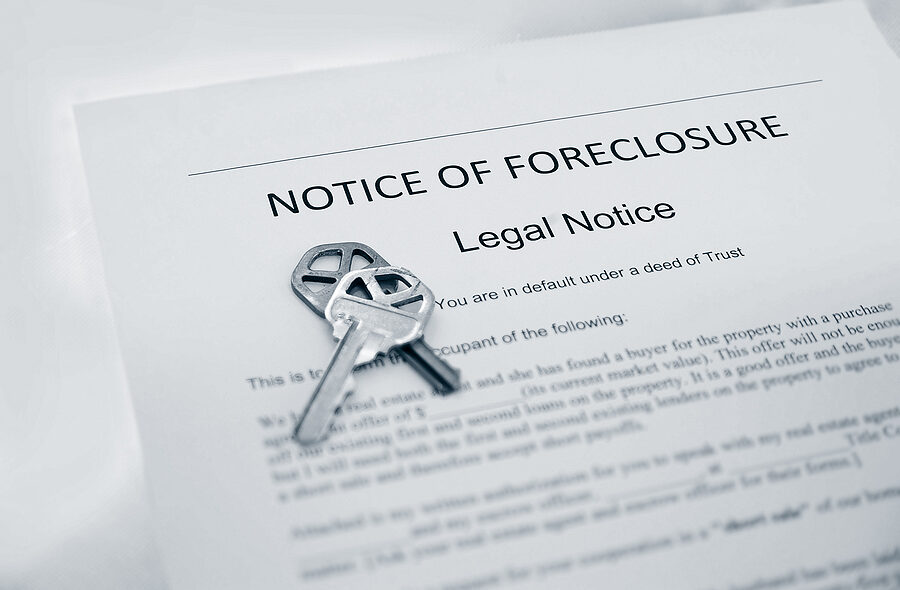As the number of evictions and foreclosures have increased across the country, these types of legal actions have increased more in Florida. As a result, Florida now has the second highest rate in the country when it comes to evictions and foreclosures.
According to figures from ATTOM, American consumers are facing a significant increase in both evictions and foreclosures. They reported that a total of 324,237 foreclosures were in the court system in the U.S last year.
In 2022, a total of 204,000 American consumers reported that they were facing eviction or foreclosure in the U.S. During this year, the rate of evictions and foreclosures increased by 56 percent (56%).
Florida, however, saw a much larger increase than the national rate, according to the U.S. government’s current population survey. Florida saw a 187 percent (187%) increase in evictions and foreclosures, which made it the second highest in the country. The number one spot has been taken by California, which saw a 411 percent (411%) increase in foreclosures and evictions in 2022.
Until recently in 2022, most states and cities have issued eviction and foreclosure moratoriums to help consumers remain in their homes during the COVID-19 pandemic, but, except for a few cities, most of these protections are now gone. With these protections eliminated and rising costs of living due to inflation and mortgage rate spikes, many Americans are struggling to remain in their homes.
Of those consumers who are likely to fall into eviction or foreclosure are single parents. Their study found that single parents are 43 percent (43%) more likely to move from their current homes due to eviction and foreclosure. Within this group, single mothers were 80 percent (80%) more likely to be a party to eviction or foreclosure action.
Members of the Generation X category were 33 percent (33%) more likely to have to move due to eviction or foreclosure, while those in the Millennial generation were 16 percent (16%) less likely to have to move due to these factors.
African American consumers were 23 percent (23%) more likely to fall into foreclosure or eviction, while Hispanic consumers were 14 percent (14%) more vulnerable to fall into foreclosure or eviction.
Florida’s Foreclosure Process
Whenever a Florida homeowner defaults on his or her mortgage payments, the foreclosure process is judicial. A judicial foreclosure proceeding begins when the lender files a legal petition, asking the court for an order to allow them to hold a foreclosure sale. Once that petition is filed, the homeowner usually gets 20 days to formally respond with the court. If the homeowner fails to respond, the lender has the legal right to file a default judgment. If the homeowner does not file an answer in court, the lender will likely receive that default judgment, speeding up the process.
After an answer is filed by the homeowner, the lender may request the court grant them summary judgment. This type of judgment is granted when there is no dispute about the critical aspects of the case, mainly that the homeowner defaulted on the mortgage obligation. If summary judgment is granted or if the homeowner loses at trial, the court will enter a judgment and order that the home be sold at auction.
When Can Foreclosure Start?
Foreclosure cannot start until the homeowner is more than 120 days past due on his or her payments. The purpose of this length of time is to give the homeowner time to submit a loss mitigation application before the foreclosure process begins.
REMEMBER: In Florida, the homeowner has rights when it comes to foreclosure! But do not delay.
Choosing the right attorney can make the difference between keeping your home or losing it in foreclosure. A well-qualified Miami foreclosure defense attorney will not only help you keep your home, but they will be able to negotiate a loan that has payments you can afford. Miami foreclosure defense attorney Timothy Kingcade has helped many facing foreclosure alleviate their stress by letting them stay in their homes for at least another year, allowing them to re-organize their lives. If you have any questions on the topic of foreclosure, please feel free to contact me at (305) 285-9100. You can also find useful consumer information on the Kingcade Garcia McMaken website at www.miamibankruptcy.com.
SOURCE: https://www.wmnf.org/florida-second-in-nation-for-eviction-and-foreclosure-moves/

